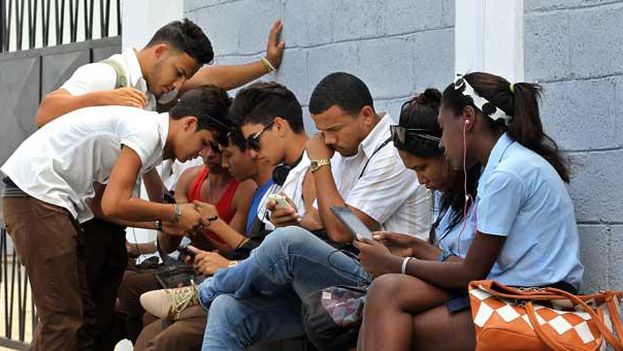
![]() 14ymedio, Mario Penton, Miami, 24 August 2016 – This coming 12-13 September, independent Cuban journalists will meet with digital innovators and individuals who are fighting to open the island to the World Wide Web. This first conference on the use of the internet in Cuba is being organized by the Office of Cuban Broadcasting (OCB), which operates Radio and TV Martí. The event will be free and open to the public.
14ymedio, Mario Penton, Miami, 24 August 2016 – This coming 12-13 September, independent Cuban journalists will meet with digital innovators and individuals who are fighting to open the island to the World Wide Web. This first conference on the use of the internet in Cuba is being organized by the Office of Cuban Broadcasting (OCB), which operates Radio and TV Martí. The event will be free and open to the public.
One of the pillars of “The Martís” (as OCB’s media are known on the island), is free access to the internet in countries where the right is censored, as is the case in Cuba,” explained Maria (Malule) Gonzales, OCB’s director.
According to Gonzalez, the event will be something new because it will not be Miami Cubans teaching islanders about the internet, but more than 20 experts in different areas who will come exclusively to share their knowledge and experience with the use of the network in Cuba.
“We are looking, first of all, to provide the ABCs of internet use in Cuba, and also to present the ‘offline’ internet that people on the island have developed: applications, informal information networks, among other things,” she explains.
The Office of Cuban Broadcasting is an institution funded by the US government in order to break the government monopoly on information in Cuba. For more than 30 years it has managed Radio Martí, later adding a television signal, both of which are bones of contention between the Cuban government, which wants their elimination, and the US government which funds them.
“Our first means of distribution is Radio Martí, but shortwave use is declining in Cuba. The digital world is gaining tremendous momentum,” said Gonzalez, hence the interest of the enterprise to enhance its digital portal.
The conference will include different sessions, among them universal access to the internet as a human right, the work of social networks and dissidence and activism in the digital era, as well as covering different Cuban media from outside the island.
Among the speakers from Cuba will be Eliecer Avila, president of the Somos+ Movement (We Are More), and Miriam Celaya, freelance journalist. In addition, professors Ted Henken and Larry Press will attend, along with Ernesto Hernández Busto, manager of the blog Penúltimos Días, and Karl Kathuria.
For Celaya, the meeting in Miami will be an occasion to show that journalism on the island has its own voice. “We are in a process of maturation. Independent journalism in Cuba was not born yesterday, but is the result of an evolutionary process. Right now, the conditions are ripe to accelerate it,” she said.
Cuba ranks among the countries with the poorest internet access in the world. According to official sources, about 30% of the Cuban population has been on the wireless networks that the government has installed in parks and downtown streets of some cities. Only two provinces have wifi in all municipalities, and prices remain very high for the average Cuban, at two CUC per hour, in a country with an average wage equivalent to about 20 CUC a month.
